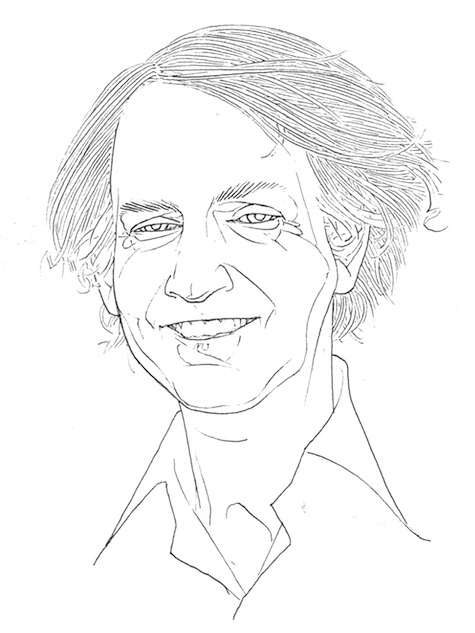It’s difficult to put into words the kind of impact Carl Sagan has had on fans of genre fiction. The combination of his enthusiasm for science education, his patience, and his outreach made him the unique man that we honor today, and if I wrote non-stop for a year I doubt I would be able to find a way to encapsulate that.
Which is when it occurred to me that I didn’t need to do that. At the 2013 New York Comic Con I was lucky enough to get to sit in on the panel for Cosmos and heard Sagan’s wife Ann Druyan and host Neil deGrasse Tyson speak of the man they loved, the man who set the example for what they were trying to accomplish. What they spoke was deeply thoughtful and brazenly passionate, and I’d like to share that with you now.
On attempting to fill Carl Sagan’s shoes with the new version of Cosmos:
Neil deGrasse Tyson: I’ve thought long and hard about that and I realized that I can’t really fill his shoes. He’s Carl Sagan, and if I do I would probably fill them badly. But I can fill my own shoes really well! And I can be a really good version of myself, so…what I owe to an audience is to just be the best I can be, given the portfolio of talents that I have to bring to the table. To the extent that that overlaps Carl, that’s great. To the extent that it’s different, that should be okay, too, as we move forward and hand off of science television programming from one generation to another, and into the 21st century.
Ann Druyan: I’d just like to add that when Carl started doing this in the late 1950s there were no other “serious” scientists who would venture out into the public. Science was kind of a priesthood that spoke a mysterious language and tried to keep all kinds of people out.
They didn’t care about whether the public understood the values and the methods and the language of science. And Carl got into a lot of trouble with his fellow scientists because he really believed that science belongs to all of us and that it was a kind of a duty, not just of the scientist but of the citizen, to understand how the world is put together.
Since that time, in some measure because of Carl, several real working scientists have emerged who really can connect. But for me there was no other [for Cosmos] than Neil. Because not only does he have the cred in terms of his scientific achievements and his work, but he also has what Carl had, which is that love of connecting with people and communicating and really inspiring other people with the power of the scientific perspective. And I have to say, from my point of view, Neil has exceeded my wildest expectations.
Neil deGrasse Tyson: I think we’ve done justice to his legacy. You will be the ultimate judge of that, but I think we’ve succeeded.
On making a connection with those unaware or uninterested in science:
Ann Druyan: As we did with, I hope, the original series [of Cosmos] the idea was not just to impart information but to dazzle the eye and, most importantly, to really make people feel something. And that’s it, you know? That was one of Carl’s, for me, virtually infinite great things. For him he was always completely open and alive and filled with wonder. But at the same time he was always rigorously skeptical. And it wasn’t one at the expense of the other.
That’s the great combination because to be fully human is to think and to feel. Not one at the expense of the other.
And that’s Cosmos to me. That’s what differentiates Cosmos from so many other first-rate excellent works of science communication is that feeling, of the stories and the visuals and the music and Neil’s stellar performance, are lofting you higher, taking you into a deeper feeling of connectedness.
So, yes we have come through a couple of decades of a kind of fearful retreat into magical thinking, wishful thinking, away from the scientific perspective and the methodology of science. It hasn’t mattered what was true in our politics, it hasn’t mattered what was true in our popular entertainment. But I think the pendulum is swinging back towards a desire to be really one with the universe as we know it at this time.
So for it to be Cosmos it’s got to make every part of you feel something and to open your eyes to the wonder of the universe revealed by science.
There was, of course, much more from that particular panel but what’s important here is reading how Carl Sagan’s loved ones speak of him. The inspiration he provided continues to propogate outward, bringing a pure and emotional love of science with it. We should all be so lucky to leave such a legacy behind.
The article was originally published November 9, 2013.
Chris Lough is the production manager of Tor.com, resident Agents of S.H.I.E.L.D. recapper, and sometimes science writer. You could bother him on Twitter if he could remember what his username was.










